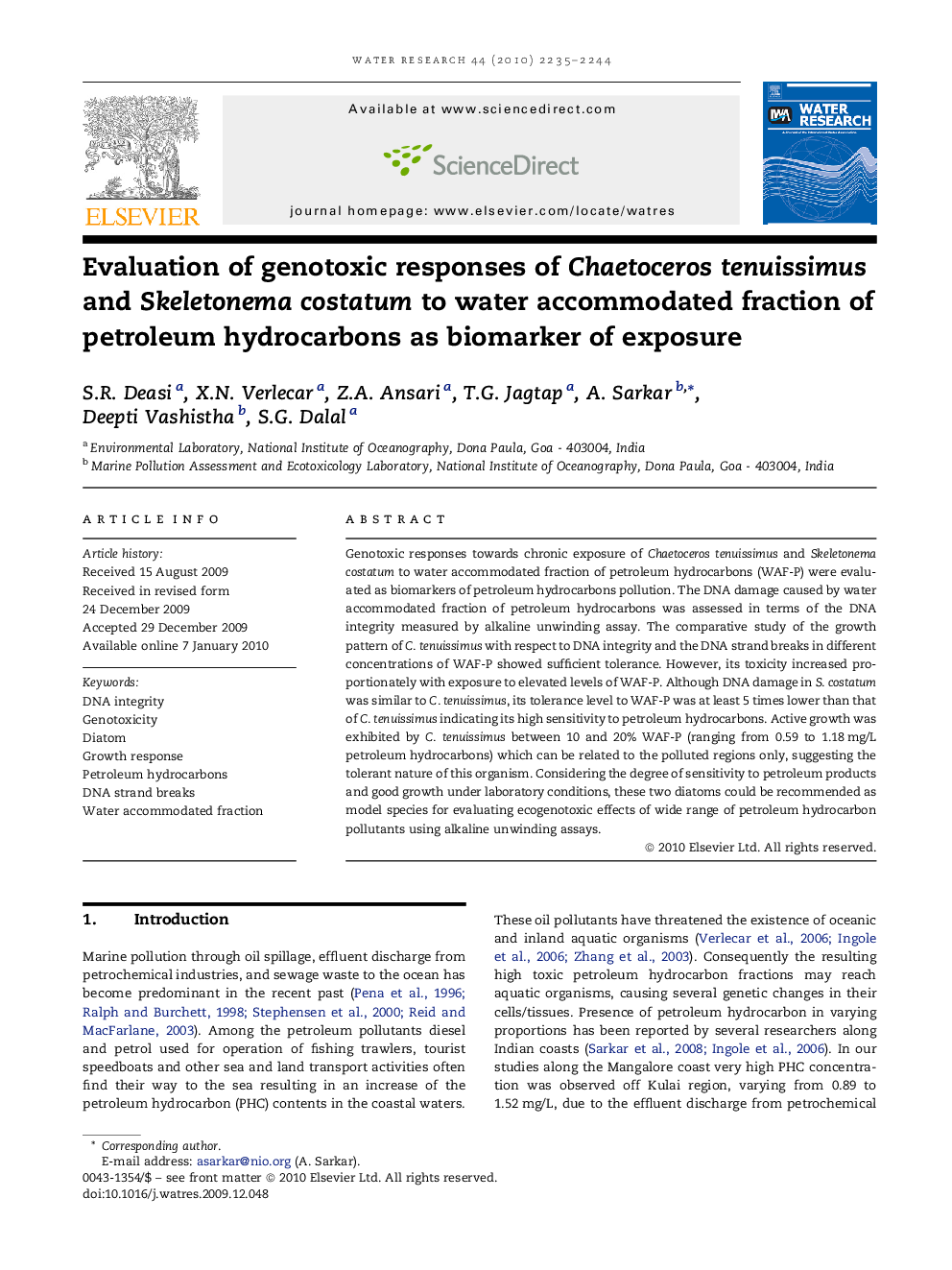| Article ID | Journal | Published Year | Pages | File Type |
|---|---|---|---|---|
| 4484034 | Water Research | 2010 | 10 Pages |
Genotoxic responses towards chronic exposure of Chaetoceros tenuissimus and Skeletonema costatum to water accommodated fraction of petroleum hydrocarbons (WAF-P) were evaluated as biomarkers of petroleum hydrocarbons pollution. The DNA damage caused by water accommodated fraction of petroleum hydrocarbons was assessed in terms of the DNA integrity measured by alkaline unwinding assay. The comparative study of the growth pattern of C. tenuissimus with respect to DNA integrity and the DNA strand breaks in different concentrations of WAF-P showed sufficient tolerance. However, its toxicity increased proportionately with exposure to elevated levels of WAF-P. Although DNA damage in S. costatum was similar to C. tenuissimus, its tolerance level to WAF-P was at least 5 times lower than that of C. tenuissimus indicating its high sensitivity to petroleum hydrocarbons. Active growth was exhibited by C. tenuissimus between 10 and 20% WAF-P (ranging from 0.59 to 1.18 mg/L petroleum hydrocarbons) which can be related to the polluted regions only, suggesting the tolerant nature of this organism. Considering the degree of sensitivity to petroleum products and good growth under laboratory conditions, these two diatoms could be recommended as model species for evaluating ecogenotoxic effects of wide range of petroleum hydrocarbon pollutants using alkaline unwinding assays.
